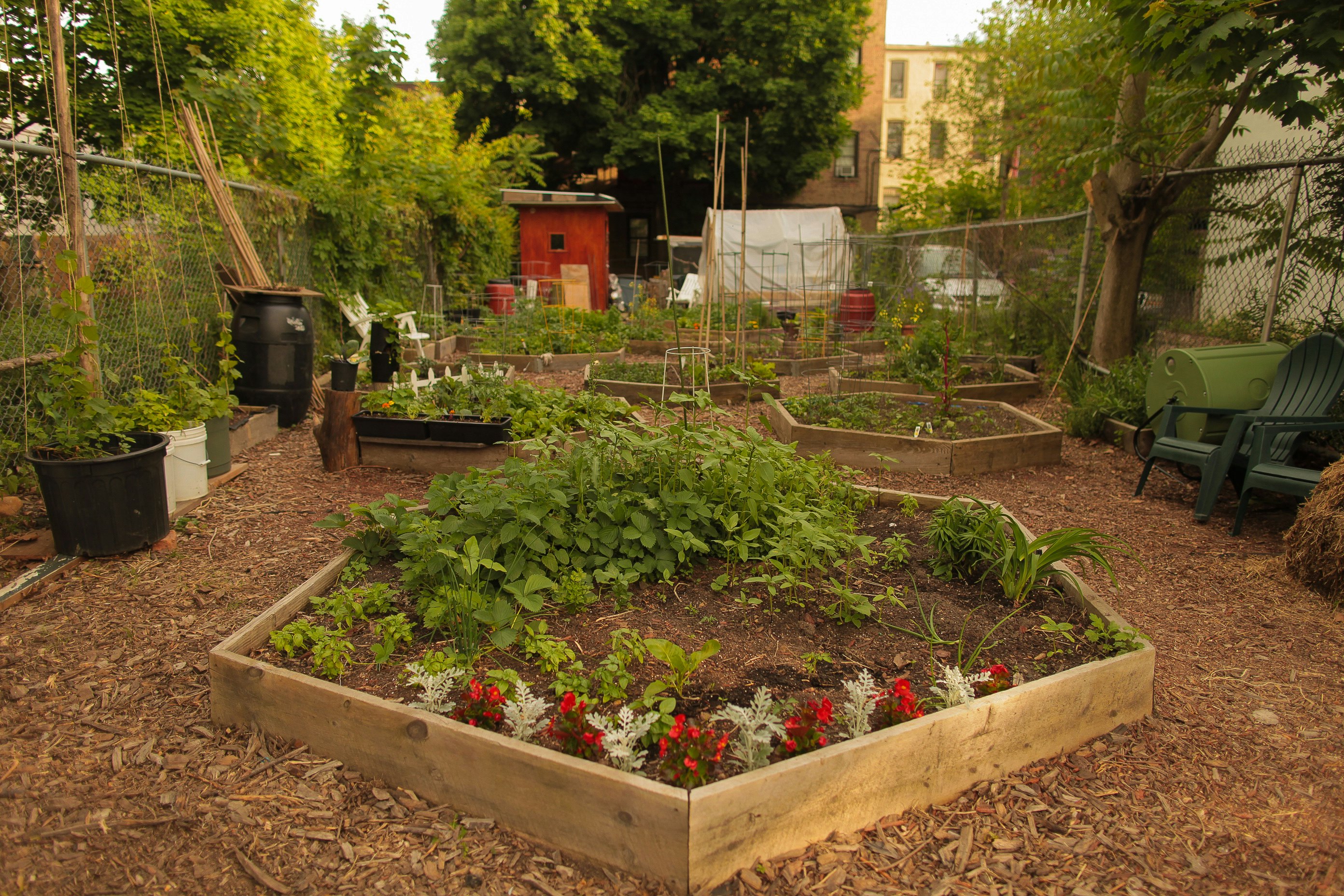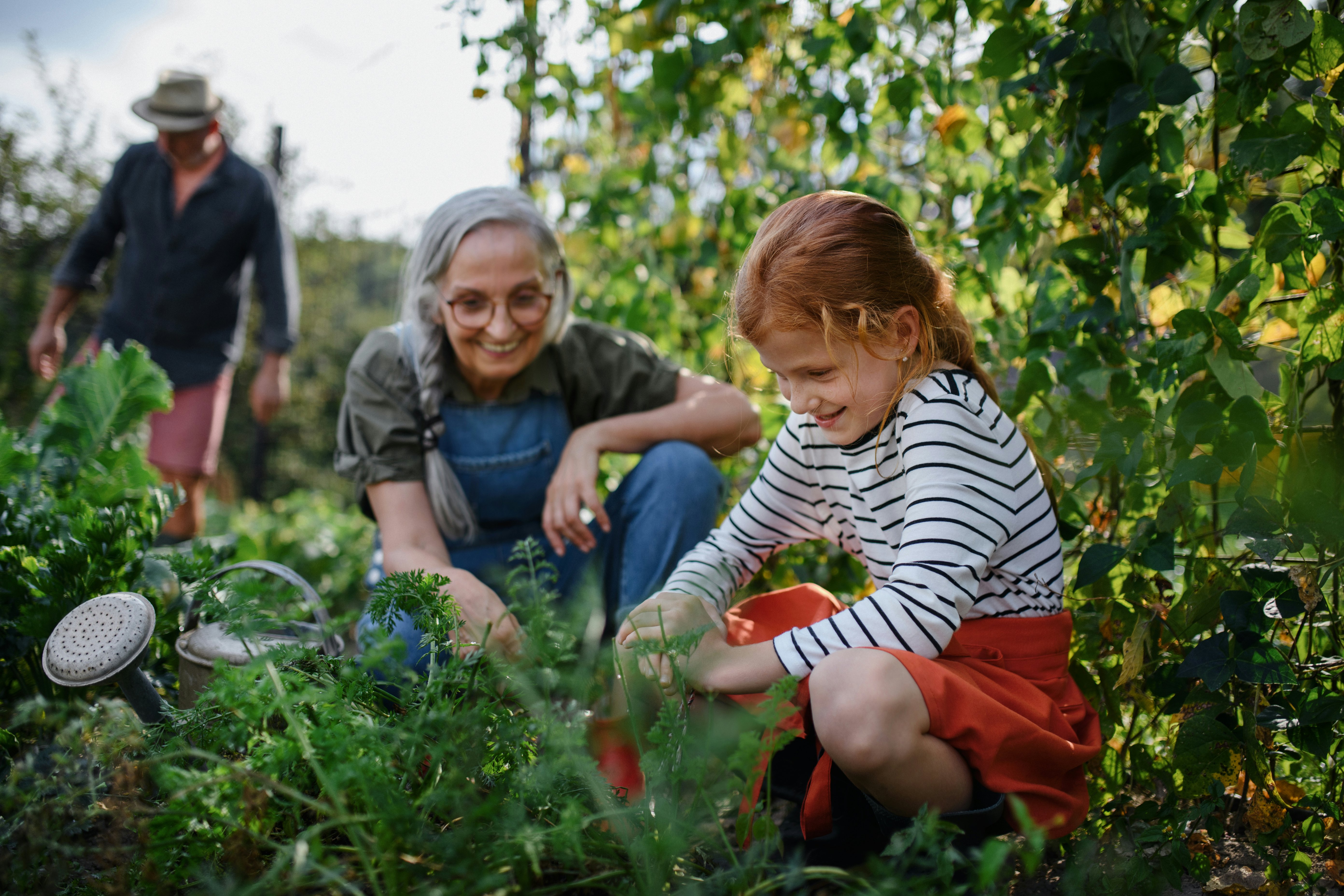
Spring comes with many little rituals and urges: A deep clean, the shelving of winter jackets, a desire for a salad instead of soup — and an urgent, gnawing need to buy and cultivate as many plants as possible (garden optional). Nature is aligned: The stretch of time right before summer is also the moment when bright, flashy flowers start to bloom and suddenly your lawn needs to be cut. It’s a moment for impulse buying tomato plants, lugging bags of topsoil, and investing in some fresh gardening gloves. Fortunately, this particular ritual does more than beautify our spaces: Gardening has a powerful effect on our mental health.
Consider this: In the first months of the Covid-19 lockdowns, some studies suggest people used their gardens and outdoor spaces 50 to 82 percent more than they did before the lockdown. In one 2022 study, researchers quote a participant who hits on the truth that gardening relieves stress:
“You can’t worry when you are engrossed in weeding, building rock walls, and installing stone paths, or planning and planting a garden,” the participant explained. “Having your hands in the earth connects you directly to nature, which is a welcome companion in my life.”
The findings jibe with a mountain of evidence showing interacting with nature — taking a walk, for example — holds massive health benefits. But gardening is distinct in that it's an active engagement with green spaces. In turn, it offers unique perks. Any garden, big or small, can aid your mental health, but there are certain elements you can include that can enhance the benefits and create a fulfilling space scientifically shown to boost your brain.
Why gardening is good for your brain

What I’m about to state might seem obvious, but science backs it up: Being in nature is good for us. A large body of research shows that time spent in natural settings provides physical and psychological benefits, including (but not limited to) feeling happier, more relaxed, more focused, less anxious, and less fatigued.
Studies on gardening also support the link between enjoying green spaces and better mental health. Gardening can reduce depression and anxiety; it can also improve emotional well-being.
For example, in the study that examined the mental health impact of gardening during the start of the Covid-19 pandemic, people who gardened were less anxious. The paper’s senior author, Rachel Rosenberg Goldstein, says the study also found a connection between spending more time outdoors on weekdays and decreased anxiety scores.
“People who listed exercise as their motivation for gardening have less anxiety, suggesting that the physical activity involved in gardening might impact mental health,” explains Goldstein, who is an assistant professor at the University of Maryland. She is also leading a project examining how gardening can address mental health challenges and food insecurity.
Naomi Sachs, an assistant professor at the University of Maryland and the founding director of the nonprofit Therapeutic Landscapes Network, adds that studies suggest “green exercise” — exercise performed in nature — even “benefits people more than the equivalent amount of exercise indoors.”
How to garden for your mental health

Gardening is demonstrably helpful for the mind and body, and there are certain actions that can enhance the experience. These include:
Gardening with others
In a recent study published in the journal The Lancet Planetary Health, researchers found that first-time gardeners found their stress and anxiety lessened after they started tending a plot in a community garden. These new gardeners also got more physical activity than the comparison group, which suggests this outdoor work could play an important role in preventing disease.
Jill Litt is the paper’s senior author and a professor at the University of Colorado, Boulder. She says that it's possible that the social support in the community garden amplifies the general benefits of gardening.
“This social support can activate a series of social processes such as shared learning, reciprocity, and relatedness,” explains Litt. “All these processes tap into intrinsic motivation, which is important for behavior changes that support health and well-being.”
Creating a garden that activates the senses
While what you can grow often depends on where you live, It can be helpful to “have a variety of positive sensory engagement plants — plants that engage all the senses throughout the entire year,” says Sachs.
“For example, lavender is beautiful to look at and smells lovely, and can even taste good when used in baking,” explains Sachs. “It’s also great for pollinators.”
She also recommends serviceberry trees, which come in different varieties that are native to various regions. They are visually striking in different ways throughout the year — in spring they bloom, in fall they often turn orange-red — and their summer berries are edible. They also provide a great habitat for animals.
“The aesthetic experience of gardening is crucial for awakening the senses and creating a sense of wonder,” says Litt.
Other ways of engaging the senses include getting your hands dirty, planting colorful flowers, and making the space inviting to birds — research also suggests the sound of birdsong benefits the brain.
Incorporating other joyful elements
Your garden doesn’t need to be limited to plants and flowers. You can also make space for other activities that destress you.
“Maybe it’s a space for yoga and a separate space for kids or dogs to run around,” Sachs says. “Maybe it’s a space for entertaining, or a hammock for reading a book or taking a nap.”
Litt describes spaces that are hospitable to company as “interactional spaces” — areas where people can come together, meditate, and more. You can make way for these sorts of spaces by adding shade and walking paths, she explains.
“These spaces can amplify the social experience by activating social support, promoting shared learning, and fostering friendships,” Litt says.







